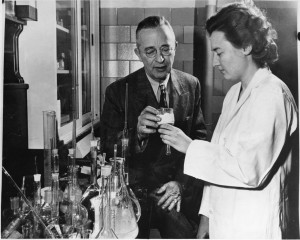Transhumanism is a desperate belief system that grasps at technological straws. But the raw desperation in that grasping has the potential–like all Utopian movements–to unleash violently destructive forces. Caveat emptor.” (Wesley J. Smith).
There are a number of pressing issues in the broad realm of bioethics. Abortion may well be the biggest bone of contention in heated argument or friendly debate. However, everything from stem cell research, to cloning and in vitro fertilization, to doctor-assisted suicide (a herald for euthanasia), to the creation chimera and the growth of human organs in animals, to the existence of three-parent children rightly falls under this purview. Eugenics may be a topic of the past—it now has a bad name thanks to the Nazis, who allowed it mask to slip in an evil regime—but it re-surfaces in what may be a major topic for bioethics in the future, which is the idea of transhumanism, and its intended end in posthumanism. As such, there cannot be a “Christian Transhumanism” anymore than there is such a thing as “Christian abortion” or “Christian euthanasia” or “Christian eugenics,” whatever are or have been the attempts to reconcile a Christian morality with these evils. Indeed, I have seen all of the above evils at one time or another included among the means that Tranhumanism might utilize to seek its goal.

What is the goal of Transhumanism, then? Nominally, it is the betterment of human life, although a number of its proponents are as interested in ending human life—in the sense of ending humanity and ushering in posthumanity [1]—as they are “bettering” it. Let us leave aside these charges: not all in the Transhumanist movement necessarily desire it to lead to posthumanism; many just want to see lives prolonged, aging slowed or halted, and other natural physical, mental, and psychological limitations overcome.
To what extent are these aims moral, and at what point (if any) do they become immoral? There are a few obvious answers here:
-
If the means used to achieve any of these seemingly noble ends are themselves evil, then then the whole project becomes immoral. Thus, if eugenics, cloning-for-organ-harvesting, or abortion-for-stem-cells become the methods used, then whatever small gains we may achieve pale next to the evil means used to achieve those ends.
-
If the ends themselves lead to some evil results, then we should be given some pause. For example, suppose that life extension enables us to live to be “old as Methuselah”–will we continue to welcome with abundance our future generations?
-
If immortality in this life becomes the goal, will we forget that we are but sojourners in this world, that we are meant for another?
-
If a perfected body in this life becomes a near-realty, will we forget that our bodies were meant to die, to return to dust—and only then to be resurrected and glorified and perfected?

These last two questions, at least, lead to one of the fundamental moral problems of Transhumanism, which is that is seeks as so many philosophies and movements have ever sought, to replace the rule of God with the rule of man. To borrow a phrase from Voegelin, it looks to immanentize the eschaton, this time with technology rather than economics or politics or schooling.
The goal of the Transhumanist movement is finally to transcend the limitations of our human nature. This is implied in the very name of the movement. The result of doing this is therefore to move beyond our human nature—to become post-human—but to do this by technology and not grace. And, as C.S. Lewis has warned in The Abolition of Man, while these ends may appear to be man’s final mastery over nature, they will inevitably ultimately involve the mastery of some men over all other men, with nature and technology as the instruments of control.
What of the more basic goals of Transhumanism: ending suffering, prolonging life or even ending death, and in general enhancing or physical and mental abilities or remedying our limitations? Each of these is or can be a noble goal in itself. There is nothing wrong with, for example, relieving pain, no moral proscription against Tylenol and Advil or even Morphine to limit our physical agonies [2]. On the other hand, physical pain is quite probably the least of our sufferings. As Peter Kreeft has noted, ours is the culture with the greatest ability to medicinally eliminate pain, and thus the least able to tolerate it; and we are among the least happy of civilizations, as measured by the “casual” suicide rate [3].

Nor is all suffering pointless. Obviously, nobody likes to suffer, and we do not enjoy the suffering itself (nor should we). But suffering has a moral purpose, and it is not only to punish us for the evils we have done. Perhaps the greatest of all suffering is the suffering of loss, and perhaps the most difficult to stand is the closely-related suffering of unfulfilled longing. Both types have a strong moral purpose, which is to remind us that although we are in this world we are not of it. We are meant to transcend this world, but not by our own power. We are meant to die in this life, so that we can be born in the next.
Death is not a barrier to be overcome or a foe to be conquered by us—Christ has already done this for us—and while we do not rejoice in death for death’s sake, nor should we fear it. Death is instead the thing which gives finality to this life, a sign which points us to our true home in heaven: we are to some extent guests or tenants here, and we will all eventually be asked to leave to our own homes. Rather than conquering death with technology—a proposition of which I am quite skeptical [4]—we should instead live life well, and prepare for a good death. Saint Joseph, pray for us!
—-Foonotes—-
[1] Posthumanism is loosely described as the ideal that humankind should take the next evolutionary step forward and ceases to be Home sapiens. Nevermind that this is not evolution per se. It is the idea that we should re-create humanity as something else, something better, again nevermind that “we” do not know who gets to decide what counts as “better.”
[2] Provided this is done responsibly—there is something immoral about an addiction, and certain pain-killers can be very addicting.
[3] As opposed to ritual or “honorable” suicide.
[4] Among other things, I suspect that this would involve a violation of such things as the Second Law of Thermodynamics. I am apparently not alone in this assessment.






7 thoughts on “The Trouble with Transhumanism”
Musing over your fine post some disparate thoughts came to mind. If a giant asteroid wiped out humanity would that be a good or bad thing ? On one hand all that you’ve worried could never occur which includes all future sin, on the other no more good would be at hand. It would also negate the second coming as there would be no one here to witness it. You really should do one on the resurrection of the body and the practical effects of having one in the hereafter. Angels are pure spirits of all shapes and sizes and powers without sin – so why not us ? In any case, God did allow all these alterations you’ve written about to occur and will “bring all things to good”. Seems to me like the karmic wheel – life-sin-death – until we are released from
these vessels that sustain it.
God is certainly able to use a giant asteroid to usher in the second coming. We don’t know what it will like except Jesus will return as He went when He ascended and it will come “as a thief in the night.” That’s not much to go on.
Agreed.
“You really should do one on the resurrection of the body and the practical effects of having one in the hereafter.”
I’m seriously considering it. I’ve written about the topic of the resurrection of the body before (though not here). For that matter, I’ve written about the Second Coming before (also not here). Both are quite interesting as topics, to be sure.
And if you do please speculate on whether these glorified bodies will make
the angels a little bit lower than us this time around.
I think that would be too much to fit in a single column. With that said, there is St. Paul’s statement in 1 Corinthians 6:3, “Do you not know that we are to judge angels?” This and a few other related passages would likely be my springboard into such speculations.
I was kind of making a pun, however if you want to push erudition
to its opinionated limits and fall flat in the arena of reason then be
my guest. To seriously consider that St Paul ( who was previously
talking about excommunication and pagans in that excerpt ) is wise enough to suggest that glorified humans will judge pure intellectual
spirits then I guess it’s not for me.